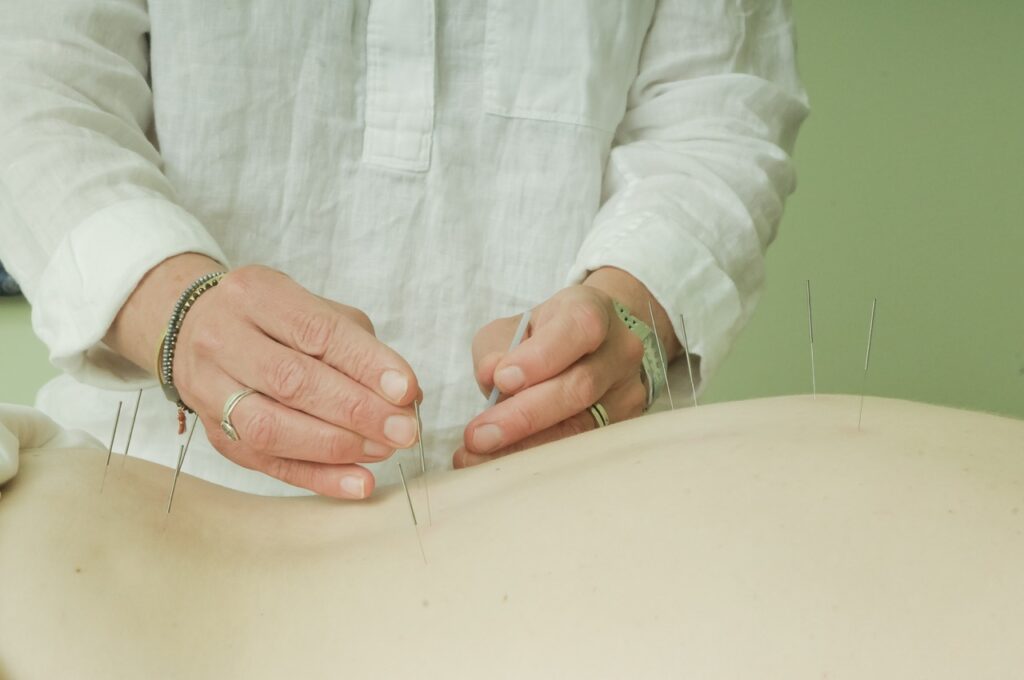Got Pain?
Acupuncture has proven to be a highly effective intervention to reduce and elminate pain. Scientific studies suggest that acupuncture works by stimulating the nervous system, enhancing blood circulation, and releasing endorphins—the body’s natural painkillers. It may also reduce inflammation and modulate brain activity associated with pain perception (Han, 2004; Vickers et al., 2018).
Benefits of Acupuncture for Pain Management
- Chronic Pain Relief: Acupuncture has been shown to provide relief for chronic conditions such as back pain, neck pain, and osteoarthritis. A systematic review and meta-analysis found that acupuncture is effective for managing chronic pain, with benefits lasting over a year (Vickers et al., 2018).
- Headache and Migraine Reduction: Many individuals experience significant improvement in the frequency and severity of headaches and migraines after acupuncture sessions (Linde et al., 2016).
- Post-Surgical Pain: Acupuncture can be an excellent complementary treatment for managing pain after surgery, reducing reliance on medication (Sun et al., 2008).
- Sports Injuries: Acupuncture is a great way to accelerate recovery and reduce pain associated with sprains, strains, and other injuries.
- Fibromyalgia and Neuropathy: For those with widespread pain or nerve-related conditions, acupuncture offers a holistic approach to relief (de Macêdo et al., 2016).


Why Choose Acupuncture for Pain Relief?
Acupuncture is a safe, natural, and drug-free alternative for pain management. It is particularly appealing for individuals seeking to avoid the side effects associated with pain medications. When performed by a licensed and experienced practitioner, acupuncture has minimal risks and can be a valuable part of a comprehensive pain management plan.
Additional Holistic Pain Relief Options
In addition to acupuncture, we offer several complementary therapies to help manage and alleviate pain:
- Chinese Herbs: These time-honored remedies work to address the root causes of pain and promote balance within the body.
- Red Light Therapy: This non-invasive treatment stimulates cellular repair and reduces inflammation, offering a soothing option for pain relief.
- Massage Therapy: Our skilled massage therapists provide targeted treatments to ease muscle tension, improve circulation, and support relaxation.
- Supplements for Pain: We provide natural, evidence-based supplements designed to reduce inflammation and enhance the body’s healing processes.
- Dry Needling: Often referred to as acupuncture on trigger points, dry needling is a highly effective technique for targeting muscle knots and relieving pain. Unlike physical therapists, our practitioners have extensive training and experience with needle techniques, ensuring safe and effective treatments.
- Electroacupuncture: This advanced technique involves applying a mild electrical current to acupuncture needles, enhancing the stimulation of specific points. Electroacupuncture is particularly effective for reducing pain, improving muscle function, and promoting faster recovery.

Start Your Journey to Pain-Free Living
If you’re struggling with pain and looking for a holistic solution, acupuncture could be the answer. At Acupuncture Denver, our skilled acupuncturists are dedicated to helping you achieve relief and restore balance to your body and mind.
References:
- Han, J. S. (2004). Acupuncture and endorphins. Neuroscience Letters, 361(1-3), 258-261.
- Vickers, A. J., et al. (2018). Acupuncture for chronic pain: Update of an individual patient data meta-analysis. The Journal of Pain, 19(5), 455-474.
- Linde, K., et al. (2016). Acupuncture for the prevention of tension-type headache. Cochrane Database of Systematic Reviews, (4), CD007587.
- Sun, Y., et al. (2008). Acupuncture and related techniques for postoperative pain: A systematic review of randomized controlled trials. British Journal of Anaesthesia, 101(2), 151-160.
- de Macêdo, L. G., et al. (2016). Acupuncture for chronic pain: An overview of Cochrane reviews. Cochrane Database of Systematic Reviews, (4), CD007819.